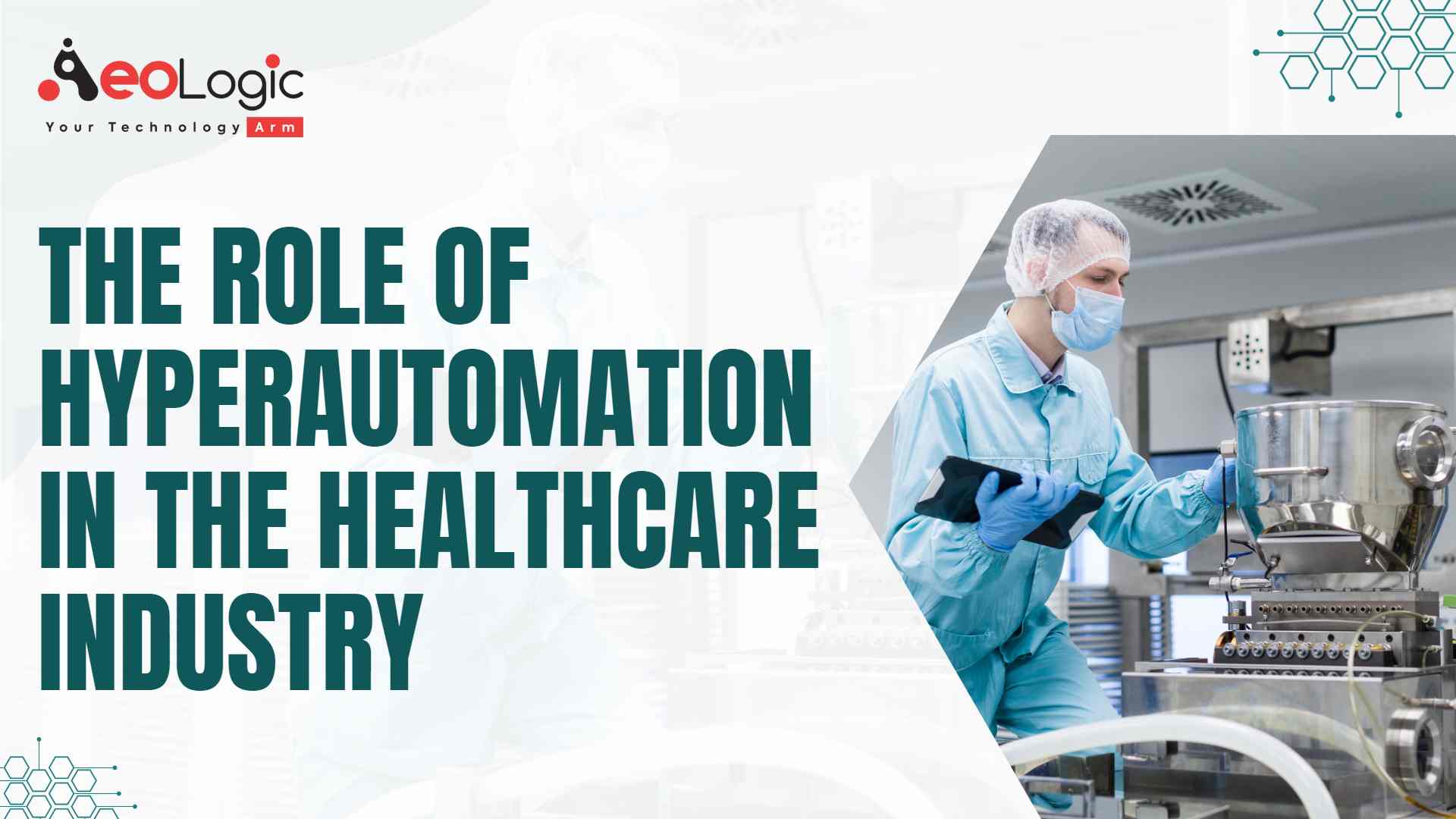Organizations nowadays want to boost productivity, minimize expenses, and aim to work most efficiently to succeed. The role of hyperautomation in healthcare is one of the solutions which can facilitate healthcare organizations to move ahead. In this article, I’ll explain the role of hyperautomation in healthcare industries.
Also read: Best Ways to Maximize the Benefits of Hyper Automation
What actually is Hyperautomation?
Hyperautomation is the use of technology for modernizing each and every process in a company. It will be enabling the company to run repetitive processes without requiring any manual intervention. Hyperautomation uses ML (Machine Learning) & AI (Artificial Intelligence), and RPA (robotic process automation), to modernize legacy processes. It can assist an organization to achieve cost efficiencies and resources to succeed in a competitive landscape.
Automation vs Hyperautomation
Automation targets to execute repetitive tasks on a smaller scale without requiring any manual intervention by creating solutions to focus on individual tasks. On the other hand, hyperautomation is referring to the effective use of multiple corresponding technologies to allow intelligent automation and to provide end-to-end automation.
Role of Hyperautomation in the Healthcare Industry
Due to the COVID-19 pandemic, digitization for the delivery of patient care has increased. Patients want easily accessible, faster, transparent, and personalized healthcare. As hyperautomation tends to focus on end-to-end automation, it augments the patient experience. Hyperautomation not only makes the process quicker. However, it also frees up resources, so they can focus on delivering value-based services to patients.
Hyperautomation is unavoidable and is soon becoming a need for survival instead of a choice for organizations, according to Gartner.
Outdated Systems:
Approximately 80% of healthcare providers are using legacy systems that are obsolete and outdated. Furthermore, only 12% of organizations are using digital transactions. It is kind of difficult to replace these systems as it can be causing integration issues and can disrupt the operations. Using technologies like OCR (Optical Character Recognition), screen scraping, and hyperautomation, healthcare industries are able to integrate older systems tointoewer ones.
The Holistic View of Operations:
Systems in the healthcare sector is very complex, vast, and interconnected. They use a mix of modern technology and legacy applications for solving specific challenges. However, this drives toward lesser visibility of the holistic view of operations. Nonetheless, addressing the ineffectiveness of healthcare systems by hyperautomation is gaining attention. And thus, impacting the entire spectrum of healthcare operations. Hyperautomation will be supporting organizations. It can bring together a variety of data from multiple sources into a common platform and thereby boost the visibility of entire operations. Therefore, this can be helping the service providers for identifying specific areas which need improvements.
Data Management:
Healthcare industries have to deal with a huge volume of data on daily basis due to Electronic Health Records and digital patient interaction. And they tend to face several challenges related to data management, such as:
- Exhaustive and monotonous labor work incurs higher operational cost
- Error-prone manual efforts will be leading to regulatory and operational barrier
- Disintegrated workflows of legacy systems
- Lesser transparency because of vast and patchy processes
Use Cases of Hyperautomation in Healthcare
Customized Health Screening:
Post-pandemic-induced remote monitoring and lockdowns are gaining traction. Data analytics, wearables, digital health assistants, and the Internet of Things (IoT) are becoming vital parts of health services. For instance, wearables and sensors help in monitoring high-risk of blood pressure and sugar levels, while digital health assists in enhancing treatment guidelines adherence. Future illnesses of patients can also be anticipated using predictive analytics. Therefore, the role of hyperautomation in healthcare can bring about a revolution in patient care.
Experience of Patient:
Conversational AI and process automation tools are able to boost the patient experience. For example, AI-based chatbots can assist customer support associates to provide faster service as well as analyze the data. They can also help in connecting with patients to provide self-service scheduling, collecting information, and sending notifications which will allow healthcare providers to investigate effectively. This is user-friendly, secure, and more easily accessible than legacy EHR systems. Hence, mitigating the cost of operation and data fraud.
Lab Automation:
RPA and improved system automation instrumentation in lab processes. It will accelerate the laboratory tasks which take a lot of time. Therefore, reducing manual efforts and waste, saving costs, and improving efficiency.
Artificial Intelligence-Led Diagnostics:
The role of hyperautomation in healthcare with machine learning (ML), computer vision, and intelligent workflows can deliver faster and more accurate results. Diagnosis will hence, become speedy by using ML and computer vision. The system will be able to perform the secondary readings automatically and assigns the cases by functional area, specialty, etc. On the other hand, post verification, diagnostics reports will be delivered directly to doctors, integrating with Electronic Medical Records (EMRs).
Also read: Top Advantages and Disadvantages of Technology in the Healthcare Sector
Wrapping Up
Soon, the role of hyperautomation in healthcare capabilities will attract traction across a wide range of business operations. It will also enhance patient health outcomes as the pandemic continues to speed up the demand for transformation in the healthcare industries.
Hyperautomation will also offer fresh business opportunities to gain a competitive advantage by providing significant business value through measurable ROI.
FAQs
What are the advantages of Hyperautomation in the healthcare industry?
From claim management to patient data, patient-provider engagement, and customer support hyperautomation facilitates organizations to become more competitive. Hyperautomation can bring together different data sources into a common platform. Thereby, expanding seamless visibility into operations.
What is the role of automation in healthcare?
Healthcare providers can work more effectively and efficiently with automation. Robotic surgery can assist surgeons to perform complex procedures with higher precision and accuracy. Automated pharmacy dispensing systems can also decrease the time it takes to fill prescriptions.










